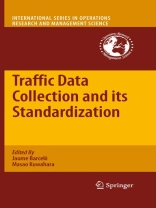A nice night of October 2007, in Beijing, during the XV World Conference on ITS a number of colleagues met informally for a dinner party that spontaneously became a vivid discussion on the importance of traffic data for all types of p- poses. Researchers can hardly do any progress in modeling, developing, and te- ing theories without suitable data, and what practitioners can do in real life is limited not only by technology but also by the availability of the required data. Quite frequently, the data and not the technologies are what determine how far we can go. Any discussion about traffic data leads in a natural way to a discussion on the variety of traffic data sources, formats, levels of aggregation, accuracies, and so on. Consequently, we moved to talk on the initiative that Kuwahara had undertaken in his traffic laboratory at the University of Tokyo, known as the International Traffic Data Base, and thus smoothly but inexorably we came to agree that it would be convenient to organize a workshop to continue our discussion at a more formal level, share our points of view with other colleagues, listen what they had to say and, if possible, d- seminate the findings in our professional and academic communities.
Inhoudsopgave
Traffic Data Collection and Its Standardization.- Data Collection, Use and Provision at the Transport Data Centre, New South Wales, Australia.- Data Collection for Measuring Performance of Integrated Transportation Systems.- International Traffic Database: Gathering Traffic Data Fast and Intuitive.- Data Mining for Traffic Flow Analysis: Visualization Approach.- The Influence of Spatial Factors on the Commuting Trip Distribution in the Netherlands.- Dynamic Origin–Destination Matrix Estimation Using Probe Vehicle Data as A Priori Information.- Using Probe Vehicle Data for Traffic State Estimation in Signalized Urban Networks.- Floating Car Data Based Analysis of Urban Travel Times for the Provision of Traffic Quality.- A Cost-Effective Method for the Detection of Queue Lengths at Traffic Lights.- Extended Floating Car Data in Co-operative Traffic Management.- Microscopic Data for Analyzing Driving Behavior at Traffic Signals.












